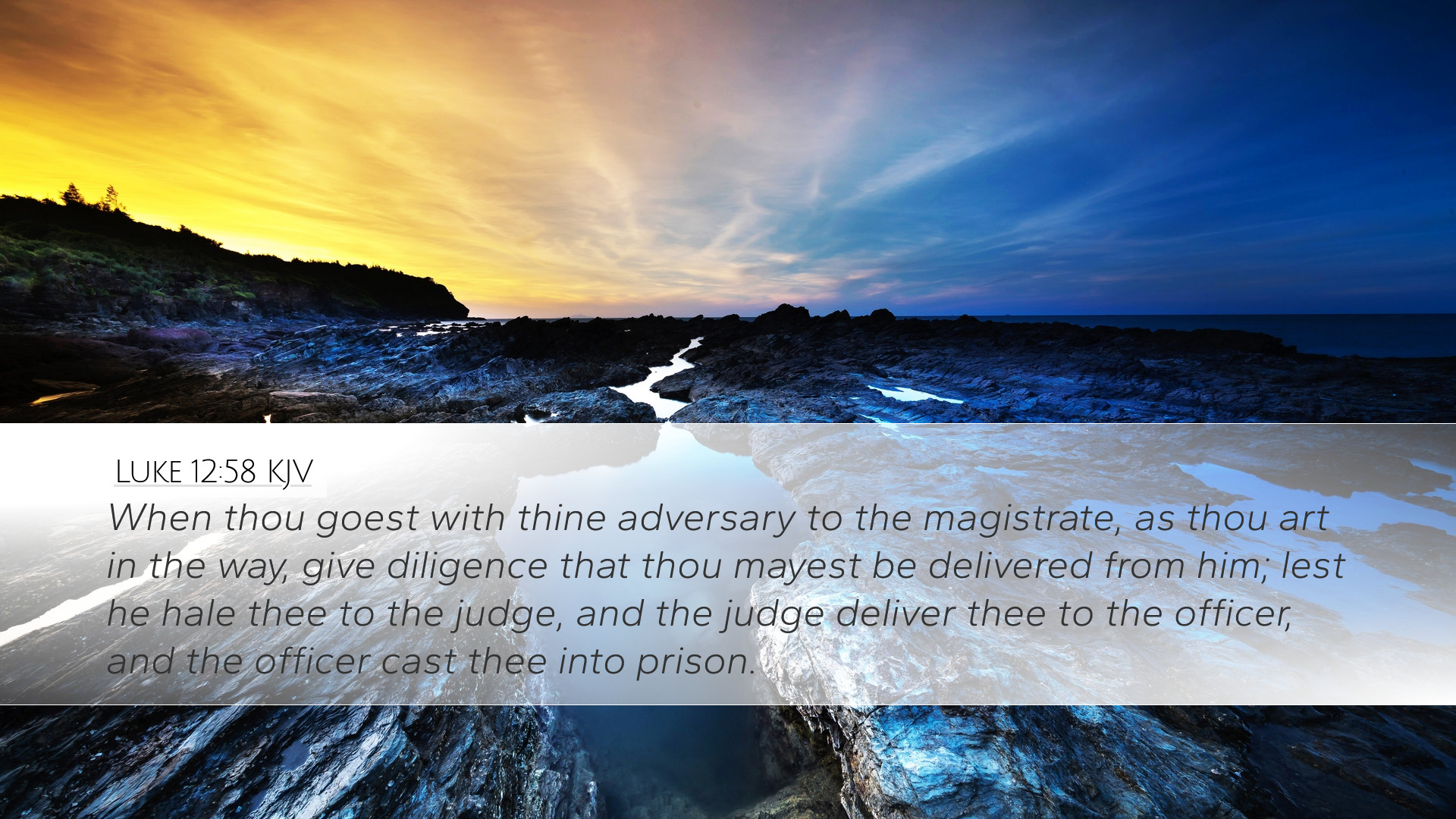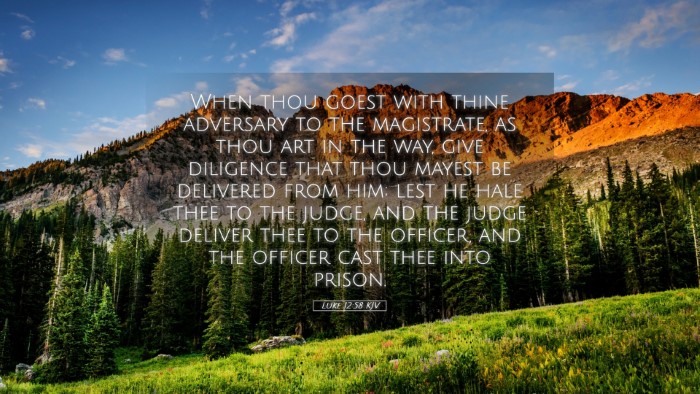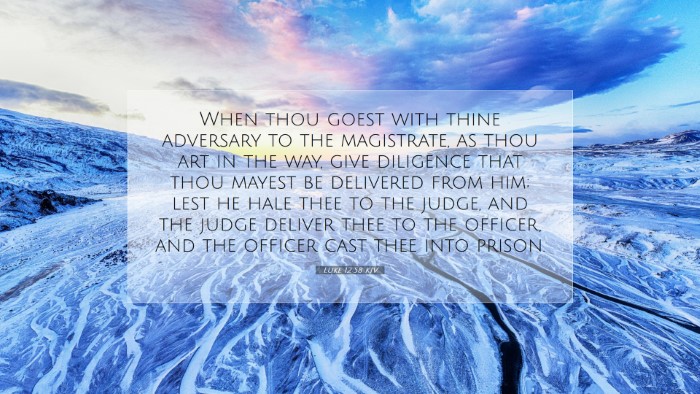Commentary on Luke 12:58
Luke 12:58 reads: "When you go with your accuser before the magistrate, make an effort to settle with him on the way, lest he drag you to the judge, and the judge hand you over to the officer, and the officer throw you in prison." This passage encapsulates a vital teaching of Jesus regarding the urgency of reconciliation and the consequences of unresolved conflict.
Contextual Overview
In the broader context of Luke 12, Jesus is addressing a crowd and discussing themes of preparedness and the serious implications of one's choices, particularly concerning spiritual integrity and relational dynamics. This verse follows a discourse on the judgment that may arise if one fails to act responsibly.
Theological Insights
This passage invites a theological reflection on several key areas:
- The Nature of Justice: Jesus highlights the importance of resolving disputes to avoid the severe implications of judgment. The magistrate symbolizes authority and judgment, pointing to the reality of divine justice.
- Human Responsibility: The call to settle matters indicates a proactive approach to conflict resolution. It reflects the Christian principle of seeking peace (see Romans 12:18).
- Consequences of Neglect: Ignoring the need to reconcile can lead to dire consequences, illustrating the dangers of evading responsibility. Jesus emphasizes the need for urgency in making peace.
Matthew Henry's Perspective
Matthew Henry offers a detailed analysis of this verse, emphasizing the practical wisdom contained within. He notes that Jesus uses an everyday scenario to illustrate the importance of settling conflicts before they escalate.
- Wisdom in Adversity: Henry advises that both parties should negotiate before they meet the judge. The underlying principle is the avoidance of unnecessary adversarial confrontation.
- Spiritual Implications: He perceives this verse as highlighting a deeper spiritual truth about the necessity of reconciling with God before facing divine judgment.
Albert Barnes' Commentary
Albert Barnes contributes valuable insights regarding the cultural and legal backdrop of the time. He points out that the magistrate represents not just civil authority but also echoes God’s judgment in spiritual matters.
- Legal and Spiritual Settlement: Barnes highlights the importance of resolving our issues, both legally and spiritually, before facing final judgment. He reflects on the significance of not letting issues go unresolved at the risk of greater penalties.
- Urgency of Reconciliation: He repeats the urgency in this situation by stating that one should actively seek peace, as waiting could lead to a far worse scenario.
Adam Clarke's Contributions
Adam Clarke’s commentary delves into ethical considerations tied to this verse. He underscores the imperative of moral rectitude in personal dealings.
- Settling with One’s Accuser: Clarke underscores that settling before reaching the judge emphasizes personal integrity and the moral obligation to seek peace with others.
- Prison as a Metaphor: He views the prison not just as a physical location but as a state of being devoid of freedom, which reflects the soul's imprisonment due to unresolved guilt or conflict.
Practical Applications for Ministry
This verse carries practical implications for pastoral care, theological education, and everyday Christian living:
- Encouraging Reconciliation: Pastoral leaders can use this passage to promote reconciliation initiatives within the church community, encouraging members to resolve conflicts peacefully.
- Preaching on Accountability: The emphasis on human responsibility before God serves as a significant reminder to congregations about their accountability in resolving disputes and seeking peace.
- Workshops on Conflict Resolution: Educational institutions may find this a fitting foundation for workshops to teach conflict resolution skills grounded in biblical principles.
Conclusion
In light of Luke 12:58, it becomes clear that the call to resolve conflicts is not merely a wise recommendation but a spiritual mandate for all believers. Each commentary reinforces the importance of human responsibility, the urgency of reconciliation, and the overarching theme of divine authority in the matters of judgment. As we reflect on this verse, we are reminded that living in harmony with one another is fundamental to a vibrant faith and a testimony of the kingdom of God.


